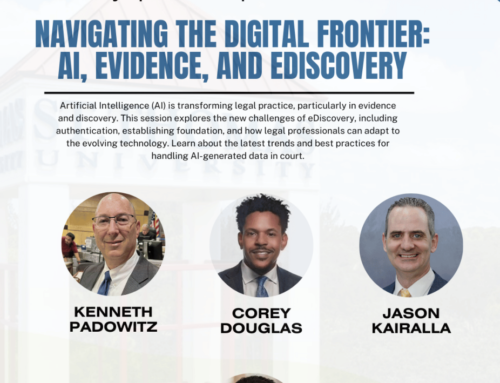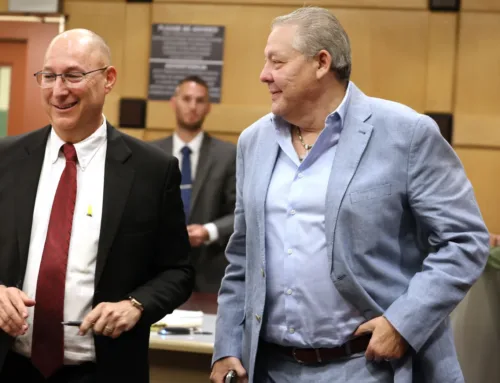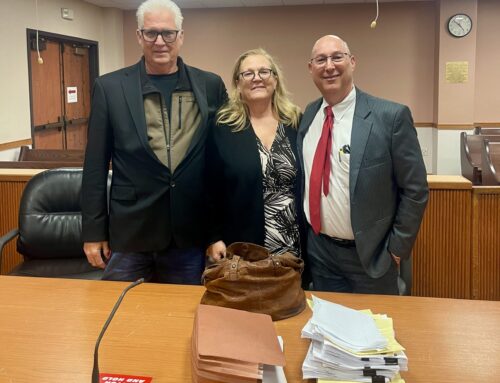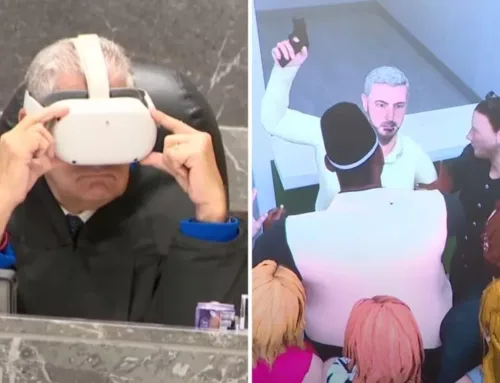This innovative approach was the brainchild of Fort Lauderdale attorneys Kenneth and Joshua Padowitz, who petitioned the court to allow Oculus Quest 2 headsets to assist the fact finder in understanding a crime scene reconstructionist’s opinion.


December 19, 2024
A Broward County judge broke new ground this week during a stand-your-ground hearing on Tuesday and Wednesday, by allowing the defendant to use Oculus Quest 2 headsets to present, in virtual reality, a visualization of an expert’s opinion in the form of a forensic animation.
This innovative approach was the brainchild of Fort Lauderdale attorneys Kenneth and Joshua Padowitz, who petitioned the court to allow the forensic animation to assist the fact finder in understanding a crime scene reconstructionist’s opinion as to what transpired during a riotous scene, which ultimately led to their client’s arrest.
The attorneys said it is believed to be the first instance of VR being admitted as evidence in a Florida courtroom in a criminal case and possibly in the United States.
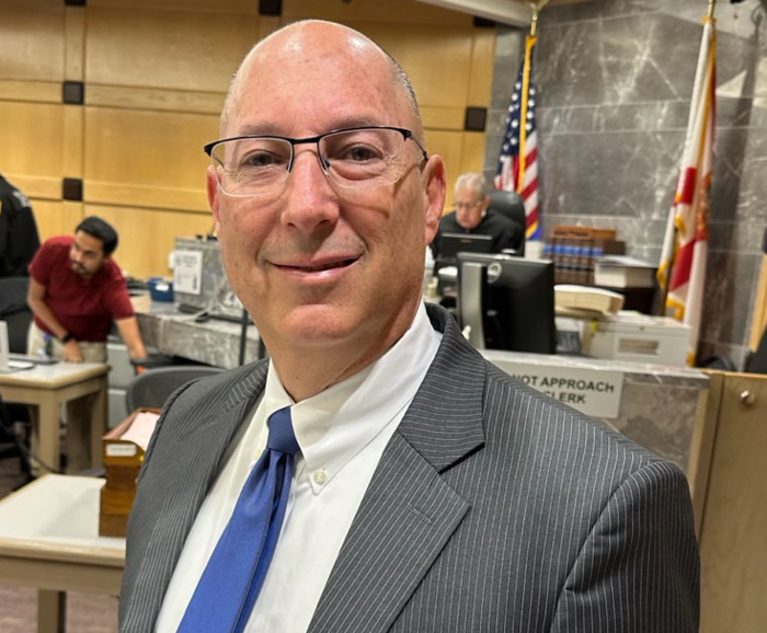
Kenneth Padowitz inside Judge Andrew Siegel’s Broward County courtroom during a hearing on Dec. 18, 2024, in Fort Lauderdale.
“It may be the first time in the United States that virtual reality was admitted into a criminal hearing,” Joshua Padowitz said. “Under Florida law, [client Miguel Rodriguez Albisu] was entitled to immediately act to protect his staff and property, and ultimately, himself and his family, and to forcibly remove the violent, intoxicated guests-turned-trespassers from his home and place of business.”
Ken Padowitz and his son Joshua run Kenneth Padowitz P.A., a criminal defense firm in Fort Lauderdale.
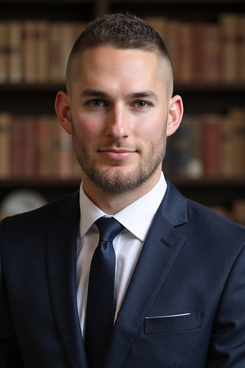
Joshua Padowitz of Kenneth Padowitz P.A.
The case involves Miguel Rodriguez Albisu, the owner of a wedding venue in Southwest Ranches who faces nine counts of aggravated assault with a deadly weapon. Albisu is accused of unlawfully brandishing a firearm without justification during a 2023 wedding reception, an incident he claims was an act of self-defense that grants him immunity from prosecution under Florida Statute §776.032.
Defense expert witness Rod Englert testified at the hearing, which the defense requested in hopes the judge would dismiss the charges against Albisu.
Englert said the VR experience illustrated the critical moment when Albisu drew his weapon while he was allegedly cornered against a bar. According to Albisu’s attorneys, the defendant was acting to protect himself, his family, his staff and his property. Padowitz explained that Albisu’s wife and son had been swarmed by wedding guests and attacked, and a DJ had thrown a chair, injuring the event planner’s wrist. Albisu, who was allegedly awakened from his sleep, directed his wife to call 911 before rushing over to his wedding venue to intervene.
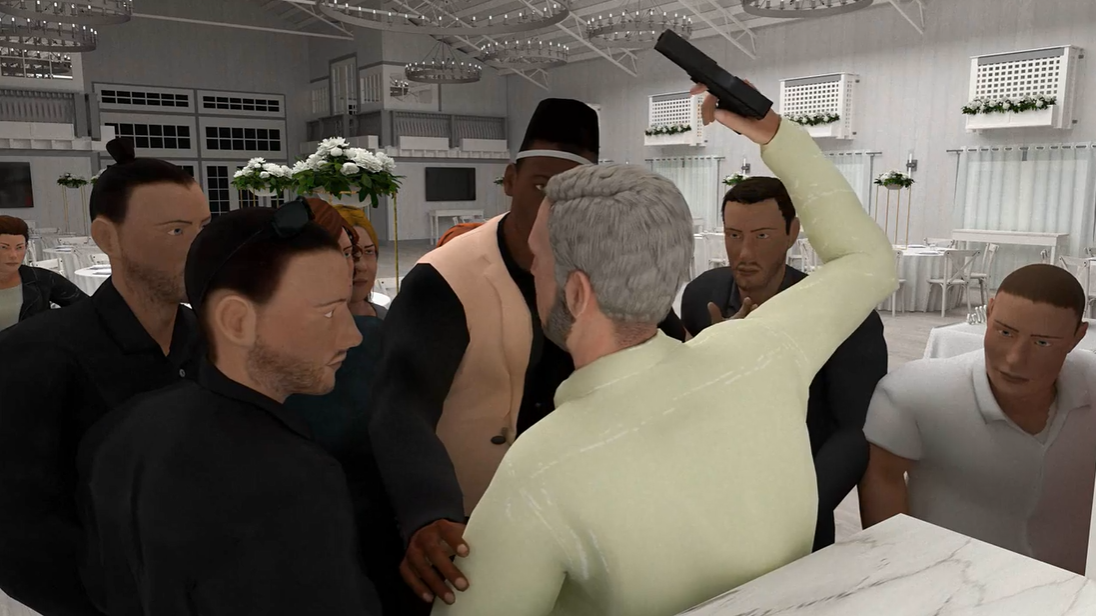
The virtual reality animation.
Inspiration From TV
Attorneys said the VR presentation was to allow Judge Andrew Siegel to immerse himself in a computer-generated recreation of the events leading up to Albisu’s actions. Ken Padowitz noted that this is the latest evolution in courtroom technology that he has introduced.
In 1992, as a homicide prosecutor, Ken Padowitz pioneered the use of computer animation as evidence in a Florida criminal case, a move that was upheld on appeal (Pierce v. State, 718 So.2d 806 1997) and set precedent across the United States. The animation detailed an SUV striking a group of children in a puddle on a road.
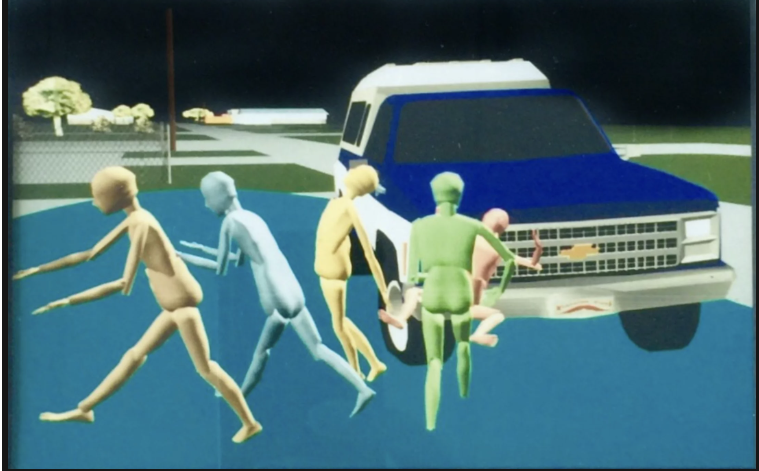
A 1992 animation for trial introduced by then Assistant State Attorney Ken Padowitz
Reflecting on the current case, he said, “Back then, it was groundbreaking. Today, with the encouragement and assistance of Josh, we’re using virtual reality to bring a level of understanding to the courtroom that was unimaginable in 1992.”
Ken Padowitz said he remembered how mesmerized he was as a kid watching cartoons and animation, and he called on the old memories to try to get a judge or jury to see his case through these types of presentations.
Legal Ethics Experts Chime In
Legal ethics adviser Jan L. Jacobowitz said, “As technology evolves, so too does the practice. If virtual reality can be used within the confines of both the ethics and evidentiary rules, then why not? Given that the next generation of jurors is coming of age in a world in which they are accustomed to virtual reality experiences, the use of virtual reality may provide an increased understanding of the facts of a case that thereby enhances the jury’s ability to render a verdict.”
Another attorney not associated with the case offered a similar cautionary outlook.
“I think video can be a useful tool when both sides agree to the facts, like in a stand-your-ground case, where the issue is whether the defendant was acting in self-defense or defense of others,” said Brian Tannebaum, special counsel to Bast Amron and past president of the Florida Association of Criminal Defense Lawyers. “But where there is a dispute as to what happened, as is typical in a criminal case, I think a video recreation creates evidentiary minefields for both sides.”
The hearing, which remains ongoing, could have far-reaching implications for the use of advanced technology in legal proceedings. Albisu’s attorneys believe this VR demonstration could set a new standard for presenting evidence in complex cases, enabling judges and juries to better grasp nuanced perspectives.
As the stand-your-ground hearing continues, legal professionals across the nation are watching closely, recognizing this case as a potential milestone in the integration of immersive technology into the justice system.
“Judge Siegel’s bold discretionary decision to allow VR into evidence exemplifies a forward-thinking approach to justice, embracing innovation to ensure a clearer understanding of complex evidence where someone’s liberty is at stake. We commend the court for allowing the use of virtual reality, which we believe will set a precedent for the future of criminal legal proceedings nationwide,” Joshua Padowitz said.




